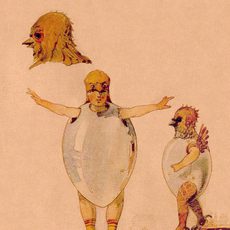
News Story
A twisted tale of exploitation, seduction, thievery and violence
Perhaps best known for his opera Bluebeard’s Castle, the Hungarian composer and pianist Béla Bartók actually considered The Miraculous Mandarin his greatest achievement. This wildly divisive one-act ballet tells a twisted tale of exploitation, seduction, thievery and violence.
Five things you might not know about this controversial work:
- Against a background of political unrest in Hungary, Bartók composed The Miraculous Mandarin while recovering from Spanish Flu.
- Five years later, the ballet was orchestrated to a story by Melchoir Lengyel, who was on a starry path to become a Hollywood screenwriter.
- Tapping into a wider interest in Eastern cultures at the time, Bartók drew on his understanding of Eastern musical styles to shape the Mandarin’s sound.
- He found inspiration in folk music, too, shaped by his travels to folk villages across Eastern Europe.
- Due to its violent and erotic themes, The Miraculous Mandarin caused a ferocious uproar when it premiered in Cologne in 1926 – the city major went as far as to ban further performances. Undeterred, Bartók believed The Miraculous Mandarin to be his life’s work.
It's Time to Dive Deeper
Read Sarah Urwin Jones’s programme note on Bach & Bartók to dive deeper into The Miraculous Mandarin.
You can hear the Budapest Festival Orchestra perform this “pantomime grotesque” alongside Johann Sebastian Bach's Orchestral Suite No.4 and Ivan Discher’s tribute to Bach on Fri 8 Aug 2025, 7.30pm at Usher Hall.



